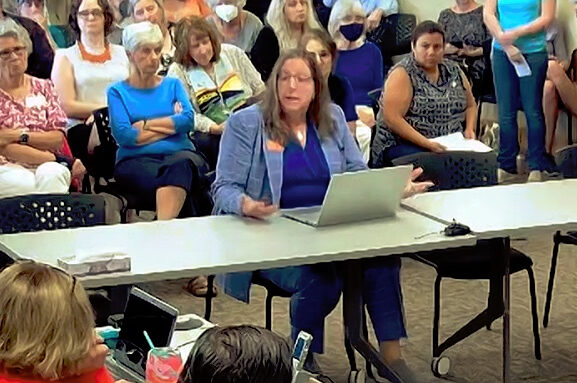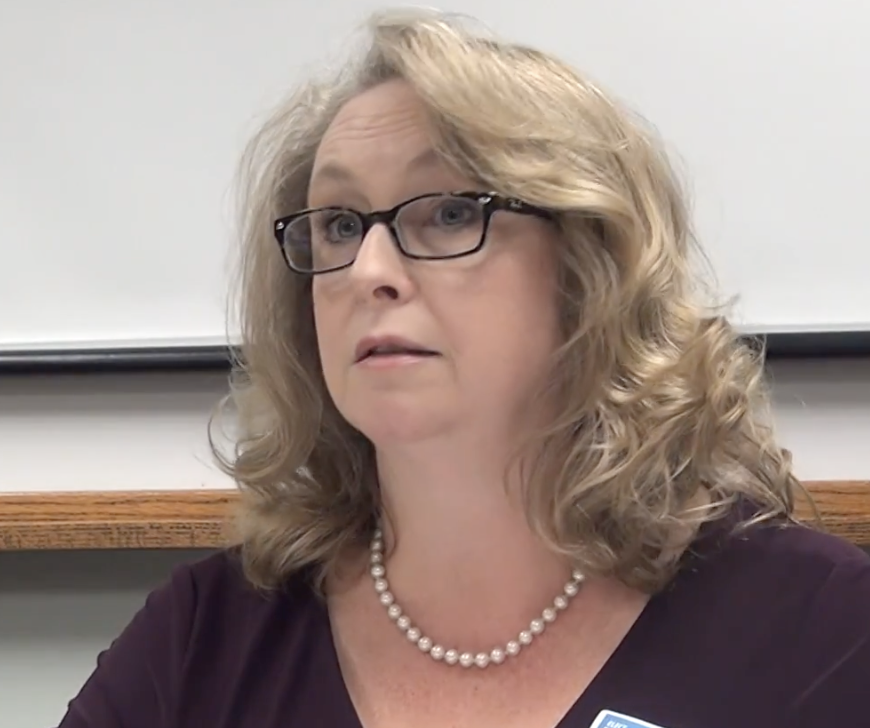Manchester School Official Urges Staff to Hide Training Materials Due to DEI Scrutiny

Emails and handouts from Manchester School District staff make two things clear.
The school district is still embracing Diversity, Equity and Inclusion content and policies. And they don’t want parents or the public to know about it.
The district is scrambling after a student handout using DEI teacher training materials in a class on the Holocaust was posted on the internet.
When it did, Amadou Hamady Sy, the Manchester School District’s executive director of Student Engagement, Outcomes and Success, sent staffers an email reminding them to keep the DEI lessons to themselves. Hamady Sy expressed concern that the materials had leaked to “individuals outside the school community and even the local press.”
 “Given the current political climate and heightened scrutiny around Diversity, Equity, and Inclusion (DEI) work, we are again reminding all staff to refrain from sharing any training materials, especially presentation slides, surveys, facilitator guides, or discussion content with students or external parties,” Hamady Sy wrote. “These resources were designed strictly for internal staff development purposes.”
“Given the current political climate and heightened scrutiny around Diversity, Equity, and Inclusion (DEI) work, we are again reminding all staff to refrain from sharing any training materials, especially presentation slides, surveys, facilitator guides, or discussion content with students or external parties,” Hamady Sy wrote. “These resources were designed strictly for internal staff development purposes.”
Not the right answer for parents or opponents of race-based DEI curricula.
“They don’t want parents and taxpayers to know that teachers are being trained to bring these divisive concepts into the classroom,” said state Sen. Victoria Sullivan (R-Manchester).
The handout in question was given to eighth-grade students at the Henry McLaughlin Jr. Middle School. It purported to lay out the “Wheel of Power and Privilege” in society, encouraging children to contemplate their own “power and privilege” by circling attributes they felt matched their own, such as skin color and economic background.
There was also a packet on so-called “microaggressions” — actions that can be labeled as racist or discriminatory even if the person committing them has no racist or discriminatory beliefs or motives.
The school district claims it was part of its Holocaust education, a state requirement. However, the handout makes no mention of Nazi Germany’s slaughter of Jews.
Sullivan called the materials the type of divisive, race-based ideology that the legislature has been trying to get out of schools for years.
“Within that lesson was a power and privilege wheel that sent a message to students that some children are better than others. That is a message that should never be put upon children,” Sullivan said. “All children are unique in their talents and abilities. Telling children that they are better than some people or are less than others based on skin color, sexuality, body size, and gender is unacceptable. The lesson also uses the term ‘cisgender,’ which is a made-up term not rooted in any science and has been deemed a slur.”
When parents began complaining about the DEI materials, district officials blamed the teacher. According to the district, the microaggressions worksheet and “Wheel of Power and Privilege” are part of teacher training and never intended for students.
“In this isolated incident, students were asked to complete an anonymous self-reflection form to explore their understanding of self to text within the unit. Unfortunately, materials intended only for staff professional development were used for this anonymous student self-reflection,” the district said in a statement released Friday. “We want to be clear that there was never a survey completed as part of this lesson or unit. The district team has taken steps so this action is not repeated.”
“But the fact remains the materials are used for teacher training, which shows the school district has the wrong priorities,” Sullivan said.
“Manchester repeatedly makes headlines for inadequate proficiency scores. Yet, this is where they are spending taxpayer dollars,” Sullivan said.
And, Sullivan added, the fact that the school is trying to keep materials secret from parents and the public raises more questions about what’s being taught in classrooms.
The Manchester School District already fought a lawsuit defending its right to keep parents in the dark about their children’s behavior regarding sex and gender at school. In court, Manchester argued the district has no legal duty to tell parents if their child identifies as a different sex at school than his or her biological one.
If Manchester parents don’t like it, “They can homeschool, or they can send their child to a private school; those are options available to them,” said the district’s attorney, Meghan Glynn.
The school district prevailed before the New Hampshire Supreme Court.
“We cannot conclude that any interference with parental rights which may result from non-disclosure is of constitutional dimension,” the Supreme Court justices ruled.













